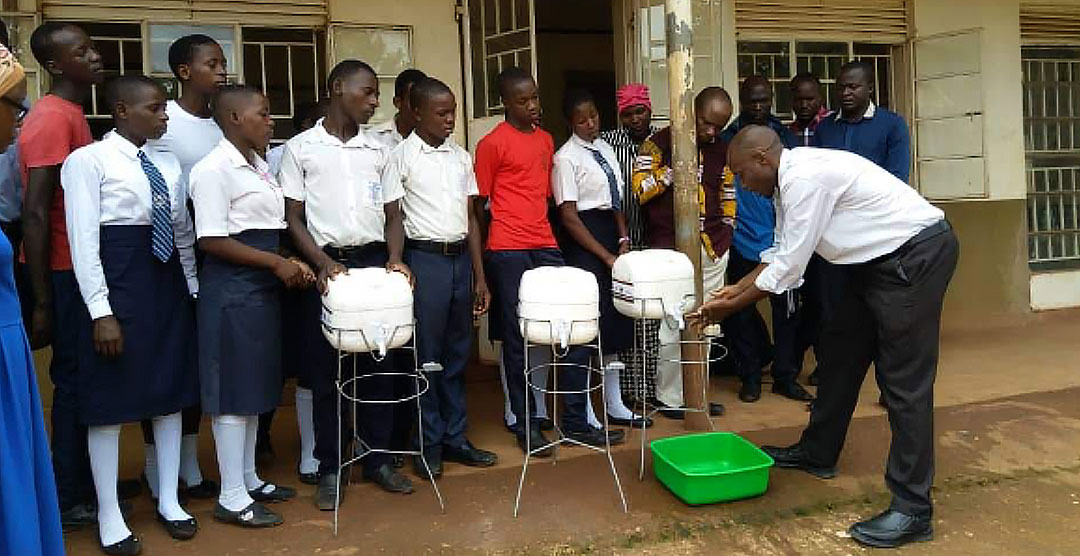
Handwashing is one of the methods that have been recommended by the Ministry of Health to prevent the spread of COVID-19 in Uganda. Dr David Musoke, an Environmental Health Scientist at Makerere University School of Public Health, answers some of the most frequently asked questions concerning hand hygiene particularly during the coronavirus pandemic.
Q1. How frequently should one wash their hands during this period?
Ans. Hands should be washed as often as possible. However, hands should particularly be washed after one touches any surface or substance that could potential be contaminated by other people such as door handles, work tables, money, supermarket trolleys, ATM machines, etc. Let us not forget also washing hands after known critical times such as after using a toilet, before preparing or eating food, and after cleaning a baby following defecation.
Q2. For how long should one wash their hands?
Ans. It is recommended that hands should be washed for not less than 20 seconds but the more time spent, the better to ensure complete removal of microorganisms including viruses. When the hands are visibly soiled, more time should be taken during handwashing, preferably not less than 40 seconds.
Q3. What parts of the hands are usually ignored during handwashing?
Ans. Many times, people wash the palms on their hands as the only part of concern. However, other parts that should not be left out during handwashing include in between fingers, the back of the hands, the thumbs, the nails, and the wrists as they could all habour disease causing organisms if not washed thoroughly.
Q4. Must one use both water and soap as well as hand sanitizer for effective hand hygiene against the coronavirus?
Ans. If one can afford both, there is no problem with having extra protection against the virus. However, not very many people can afford this luxury. Therefore, using either water and soap or hand sanitizer should be sufficient. People who cannot afford hand sanitizers are encouraged to use the available soap and water to wash their hands provided they follow the right procedure. It should also be emphasized that hand sanitizers are not encouraged for use when hands are visibly soiled as the dirt could affect the killing effect of the product on microorganisms. In such a case, washing hands with soap and water should be done.
Q5. People have been advised to dry their hands with disposable towels after washing them which are not affordable to many. What other options are available for this purpose?
Ans. In the absence of disposal towels, the public should be encouraged to let their hands dry on their own after handwashing which should take a few minutes. Using reusable towels or one’s own clothes should be discouraged to avoid possible re-contamination of the hands after washing them.
Q6. Do you have any other advice regarding handwashing?
Ans. I wish to urge the public that in addition to preventing COVID-19, they should be keen to wash their hands to reduce the spread of many other diseases prevented by the practice particularly those transmitted through the faecal-oral route. Such diseases include diarrhoea, cholera, typhoid and dysentery. My hope is that the improved handwashing practices we are currently seeing among the population during the coronavirus pandemic are sustained in future.
Image: Dr David Musoke demonstrating proper hand washing to students at Bussi secondary school, Wakiso district

